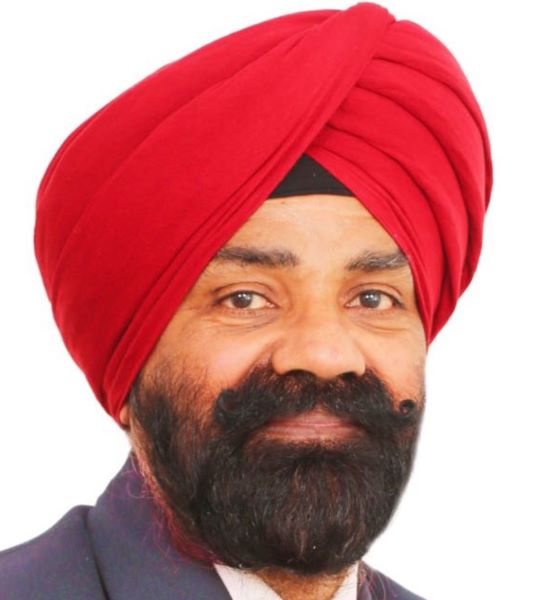OVER SPECULATIONS IN JOURNALISM – A MENACING TREND
THE ASIAN INDEPENDENT, UK-
Speculations (Jyotishism) has long been a contentious issue in journalism. Whether it should be made or avoided is a matter of debate and concern too. In an era, where information travels at lightning speed, the pressure on journalists to provide real-time updates has resulted in a blurring of the line between verified facts and conjecture. Information providing and spreading misinformation by reporting often occurs when facts are incomplete, and the desire to meet audience demands overrides caution. While speculation can be useful in certain contexts, it raises critical ethical and professional concerns regarding accuracy, credibility, and the role of journalism in society. Since correct information enlightens the masses to make logical decisions, misleading information can diametrically change the destiny of a country. Common and much hated Godi Media satellite channels in India are infamous for paid news. They create hype in favour of the Masters for political and financial gains .
Speculation in journalism typically occurs when reporters or news outlets discuss possible outcomes or hypothesize about events without having all the verified facts. It is a form of inference, where journalists may offer predictions or analyse uncertain situations based on available information. This is especially prevalent during breaking news situations, political coverage, or public health crises, where facts are fluid, and developments are unpredictable.
Recently the Breaking News about health of Chief Minister of Punjab, Sh Bhagwant Mann on daily basis created lot of confusion and shock in public mind. Social media even fired out the news of a disease of very serious nature. Few others even talked about ” New CM , Acting Chief Minister, Deputy CM as if Mr Bhagwant Mann will be incapacitated to handle CM office.
Other common example is in political reporting, where pundits frequently speculate on election outcomes, policy decisions, or political alliances. Similarly, in crisis situations such as natural disasters or terrorist attacks, journalists may speculate on causes, casualty numbers, or responses from authorities even before verified information becomes an incident
At its core, journalism serves to inform the public by providing accurate, timely, and relevant information. However, speculation, when done responsibly, can provide audiences with context, analysis, and a sense of the possible direction of events. It can help people understand complex situations by breaking down potential outcomes or explaining the rationale behind certain developments. This interpretative function is one of journalism’s valuable contributions, particularly in situations of uncertainty.
For example, during election seasons, speculation about voter behaviour or potential election results can help the public navigate the complexities of political strategies and polling data. Similarly, during a natural disaster, speculating about potential risks or emergency responses can help communities prepare and respond more effectively. Responsible speculation, grounded in expertise and a careful consideration of facts, can enhance public understanding of complex issues.
Speculative reporting on share market, possible winning of one political party in assembly/ parliamentary elections can create havoc to the stakeholders. While speculation can be useful, it poses significant ethical challenges. The core of journalism is built on the principles of truth, accuracy, and fairness. Speculation, by its very nature, is not fact. It is, at best, an educated guess, and at worst, a form of misinformation. The risk lies in the audience’s inability to distinguish between verified information and conjecture, particularly in an environment where news is consumed quickly and often in fragmented forms via social media.
When speculation is mistaken for fact, it can mislead the public, damage reputations, and exacerbate public fears. There is much talked ” Fear spreading news of ” Third World War” and ” Change of India’s Modi Government ” by one Jyotishi through few U tube channels. Speculation in such sensitive matters can erode trust in journalism, making it more difficult for the public to distinguish credible information from rumours or falsehoods.
Credibility is one of the most vital assets of any news organization. . In an era where misinformation and “fake news” are already major concerns, speculative reporting can further erode public trust in the media. The rise of social media and 24-hour news cycles has exacerbated the issue of speculation in journalism. Social media platforms thrive on immediacy, and the pressure to be the first to break a story or provide updates can push journalists to publish unverified information or engage in speculative reporting. This can lead to a race for clicks, where sensationalized headlines and conjectures take precedence over careful, fact-checked reporting.
The fast-paced nature of digital news consumption means that retractions or corrections often receive far less attention than the original speculative reports, further complicating the issue. Moreover, algorithms that prioritize engagement can amplify speculative content, causing it to spread widely before any verification or correction is made.
The challenge for modern journalists is to strike a balance between providing timely information and maintaining the integrity of their reporting. Speculation should be clearly labelled as such, with careful distinctions made between known facts .Contextualizing speculation with expert analysis or evidence can mitigate some of its risk. Additionally, transparency is key. Journalists should communicate openly about the limits of their knowledge and the uncertainty surrounding ongoing events.
Speculation in journalism is very crucial in saving right to information in a democracy . It is an also double-edged sword. In a media landscape where information is abundant but verification can be slow, journalists must tread carefully when engaging in speculative reporting. By adhering to principles of transparency, responsibility, and ethical integrity, journalists can navigate the fine line between informing and misleading, ensuring that speculation serves the public good rather than undermining it. I believe that media houses n governments should evolve a self regulatory authority to control speculative trend up to an acceptable limit








